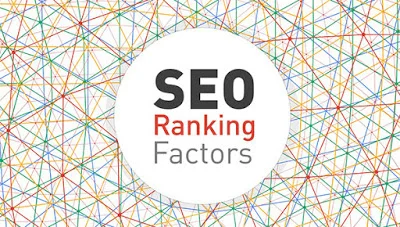Google's Top Three Ranking Factors
- SEO Algorithms
- by Seth Pollins
- 04.10.2021

Google calls its ranking factors "200 unique signals or 'clues' that make it possible to surface what you might be looking for."
These "signals" have long been a rich source of speculation for SEO experts, yet we still have no clear view of the ranking factors. Even the top result for "Google ranking factors," Backlinko's "complete list" of 200 ranking factors, admits: "Some are proven. Some are controversial. Others are SEO nerd speculation."
The most important ranking factors are self-evident. Google also states, for example, "These signals include things like the specific words that appear on websites, the freshness of content, your region, and PageRank."
So keywords, updated content, local SEO, and authority: SEO experts have long celebrated these crucially essential factors.
It's the 196 or so other factors that lead to "nerd speculation." And really, that's all it is, speculation, of relatively minor importance. We might never know the majority of the 200 ranking factors. Thankfully, we know the most important.
In 2015, Google confirmed that RankBrain was the "third most important factor." Later, Google confirmed the top two: links and content.
"I can tell you what they are," a Google rep said. "It is content. And it's links pointing to your site."
What of the 197 or so other factors? Who knows, for sure? Any successful optimization campaign should start (and continue) with particular attention to the top three.
Below we discuss each factor in detail.
Quality Links
Google counts incoming links from reputable sites as a primary "clue" to determine the quality of your content. The more reputable links your content receives, Google believes, the better your site.
In the past, Google's algorithm counted incoming links without focusing on the link's provenance. A website might've attracted an abundance of links from exchanges or bogus websites.
Google now defines a 'good' link as a one-way link: a link that points from one site to another. Before the Penguin algorithm, many sites exchanged links, a practice Google penalized. To avoid penalties, Black Hat web admins created multiple websites, a hundred or more, all owned by one website and built to create links to the primary website. Flooded with incoming links, the primary website leaped in the rankings.
The Penguin algorithm was created, in part, to punish these link schemes. Now that Penguin is real-time, the emphasis on quality links may have more immediate consequences--good or bad--for websites.
So how do you attract quality links? Let Google's advice guide you:
"The best way to get other sites to create high-quality, relevant links to yours is to create unique, relevant content that can naturally gain popularity in the Internet community. Creating good content pays off: Links are usually editorial votes given by choice, and the more useful content you have, the greater the chances someone else will find that content valuable to their readers and link to it."
Quality Content
You do not need an SEO expert to know that content dominates the Internet. From listicles to polls to op-eds, we have a seemingly insatiable appetite for all types of content.
The good news is that our appetite requires endless fresh content. The bad news is that the endless appetite for content inspires an equally endless competition.
To compete, you must create "quality" content.
How do you create quality content? Again, Google's advice is helpful: Create content that is "high quality" and "engaging" as well as "useful and informative," yet also "more valuable and useful than other sites." You must also display a certain level of "credibility...by using original research, citations, links, reviews, and testimonials."
The SEO Sparta Blog is devoted, in part, to exploring the nature of quality content. We have written extensively on content.
Remember, despite the abundance of content on the Internet, your content strategy should always focus on quality above quantity.
RankBrain
In a way, RankBrain, Google's new "machine learning" system, which uses artificial intelligence to sort queries, is an algorithm. However, RankBrain does not sort every search right now and is merely a part of Google's core algorithm, Hummingbird.
RanKBrain intends to take Google's 3.5 billion daily searches and learn from each by noting connections between the search and where the browser finally clicks.
In the past, all of Google's "learning" has been performed by coders, which creates inherent bias: We end to think about algorithms as neutral, but really, although engineers base algorithms on mathematical principles, most of the judgments about those principles are precisely that--judgments, made by biased humans.
Now that Google uses artificial intelligence, the algorithm should, in theory, choose the most precisely optimized site pages available for every query. Of course, as above, optimization here means "quality" -a hopeful sign for new websites trying to compete. In theory, if you follow Google's advice on how to inspire links and write quality content, your page should get a fighting chance against more established sites.
Natural Website Optimization with SEO Sparta: A Bucks County, PA SEO Firm
If you're looking for an SEO company that understands how to create relevant and engaging content, contact SEO Sparta.
We combine traditional content marketing methods and organic SEO, emphasizing natural website optimization to design thoughtful, inspiring, and effective marketing campaigns.
If you are interested in transforming your website into a money-making tool or are interested in exploring opportunities to outperform your competition, we encourage you to contact SEO SPARTA.
We combine traditional marketing methods and organic SEO--emphasizing natural website optimization--to design thoughtful, inspiring, and effective marketing campaigns.
 For a limited time, we provide website design and development for just a one-time low fee of $499.
For a limited time, we provide website design and development for just a one-time low fee of $499.